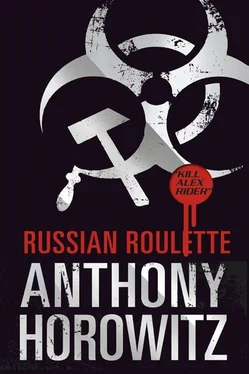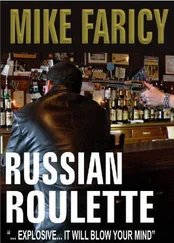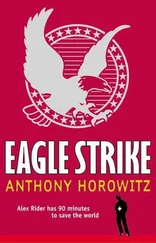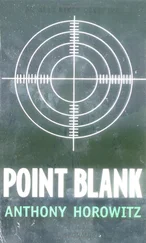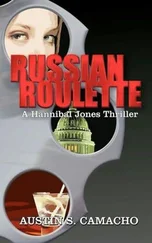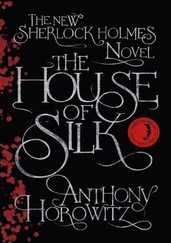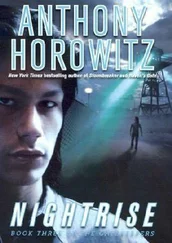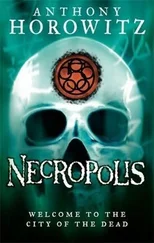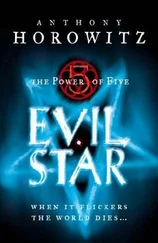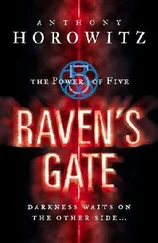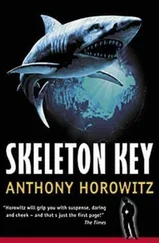“What’s your business in the United States?” he asked.
“I’m studying American literature. I’m here to attend some lectures.”
“How long are you staying…?” He squinted at my name in the passport. “…Yassen?”
“One week.”
I thought that would be it. I was waiting for him to pick up the stamp and allow me in. Instead, he suddenly asked, “So how do you like Scott Fitzgerald?”
I knew the name. F. Scott Fitzgerald had been one of the greatest American writers of the twentieth century. “I really enjoyed The Great Gatsby ,” I said. “I think it’s his best book. Although his next one, Tender is the Night , was fantastic too.”
He nodded. “Enjoy your stay.”
The stamp came down. I was in.
I had one suitcase with me. Both the suitcase and all the clothes inside it had been purchased in Moscow. Of course I carried no weapon. It might have been possible to conceal a pistol somewhere in my luggage but it wasn’t a risk worth taking. Thanks to America’s absurd gun laws, it would be much easier to arm myself once I arrived. I waited by the luggage carousel until my case arrived. I knew at once that nobody had looked inside the case either at Rome Airport or here. If the police or airport authorities had opened one of the catches, they would have broken an electrical circuit which ran through the handle. There was a blue luggage tag attached and it would change colour, giving me advance warning of what had happened. The tag was still blue. I grabbed the case and went out.
My contact was waiting for me in the arrivals hall, holding up my name on a piece of white card. He looked like all the other limo drivers: tired and uninterested, dressed in a suit with a white shirt and sunglasses, even though it was early evening and there was little sign of the sun. He had misspelt my name. The card read: YASSEN GREGORIVICH. This was not a mistake. It was an agreed signal between the two of us. It told me that he was who he said he was and that it was safe for us to meet.
He did not tell me his name. Nor did I ask. I doubted that the two of us would meet again. We walked to the car park – or the parking garage as the Americans called it – without speaking. He had parked his car, a black Daimler, close to the exit and held the door open for me as I slid into the back seat. He climbed into the front, then handed me another envelope. This one was also marked with a scorpion.
“You’ll find your instructions inside,” he said. “You can read them in the car. The drive is about forty minutes. I’m taking you to the SoHo Plaza Hotel, where a room has been reserved in your name. You are to stay there this evening. There’ll be a delivery at exactly ten o’clock. The man will knock three times and will introduce himself as Marcus. Do you understand?”
“Yes.”
“Good. There’s a bottle of water in the side pocket if you need it…”
He started the engine and a moment later, we set off.
Nothing quite prepares you for the view of New York as you come over the Brooklyn Bridge; the twinkling lights behind thousands and thousands of windows, the skyscrapers presenting themselves to you like toys in a shop window, so much life crammed into so little space. The Empire State Building, the Chrysler Building, the Rockefeller Centre, the Beekman, the Waldorf-Astoria… your eye travels from one to the other but all too soon you’re overwhelmed. You cannot separate them. They merge together to become one island, one city. Every time you return you will be amazed. But the first time you will never forget.
I saw none of it. Of course I looked out as I was carried over the East River but I couldn’t believe I was really there. It was as if I was sitting in some sort of prison and the tinted glass of the car window was a silent television screen that I was glimpsing out of the corner of my eye. If you had told me, a year ago, that I would one day arrive here in a chauffeur-driven car, I would have laughed in your face. But the view meant nothing. I had torn open the envelope. I had taken out a few sheets of paper and two photographs. I was looking at the face of the person I had come to kill. My first thoughts had been wrong. My target was not a man.
Her name was Kathryn Davis and she was a lawyer, a senior partner in a firm called Clarke Davenport based on Fifth Avenue. I suspected that the address was an expensive one. The first photograph was in black and white and had been taken as she stood beside a traffic light. She was a serious-looking woman with a square face and light brown hair cut in a fringe. I would have guessed she was in her mid-thirties. She was wearing glasses that only made her look more severe. There was something quite bullish about her. I could easily imagine her tearing someone apart in court. In the second photograph she was smiling. This one was in colour and generally she was more relaxed, waving at someone who was not in the shot. I wondered which Kathryn Davis I would meet. Which one would be easier to kill?
There was a newspaper article attached:
NY LAWYER THREATENED
In Red Knot Valley, Nevada, she’s a heroine – but New York lawyer Kathryn Davis claims she has received death threats in Manhattan, where she lives and works.
Ms Davis represents two hundred and twelve residents of the Red Knot community, who have come together in a class action against the multinational Pacific Ridge Mining Company. They claim that millions of tonnes of mining waste have seeped into their ecosystem, killing their fish, poisoning their crops and causing widespread flooding. Pacific Ridge, which has denied the claim, owns several “open pit” gold mines in the area and when traces of arsenic were found in the food chain, local people were quick to cry foul. It has taken 37-year-old Kathryn Davis two years to gather her evidence but she believes that her clients will be awarded damages in excess of one billion dollars when the case comes to court next month.
“It’s not been an easy journey,” says mother-of-two Ms Davis. “My telephone has been bugged. I have been followed in the street. I have received hate mail that makes threats against me and which I have passed to the police. But I am not going to let myself be intimidated. What happened in Red Knot is a national scandal and I am determined to get to the truth.”
I had also been supplied with the woman’s home address – which was in West 85th Street – and a photograph of her house, a handsome building that looked out over a tree-lined street. According to her biography, she was married to a doctor. She had two children and a dog, a spaniel. She was a member of several clubs and a gym. There was a blank card at the bottom of the envelope. It contained just four words:
MUGGING. BEFORE THE WEEKEND.
It is embarrassing to remember this but I did not understand the word ‘mugging’ – I had simply never come across it – and I spent the rest of the journey worrying that the driver or Marcus would discover that I had no idea what I was meant to do. I looked up the word the next day in a bookshop and realized that Scorpia wanted this to look like a street crime. As well as killing her, I would steal money from her. That way there would be no connection with Scorpia or the gold mines at Pacific Ridge.
The driver barely spoke to me again. He pulled up in front of an old-fashioned hotel, where there were porters waiting to lift out my case and help carry it into reception. I showed my passport and handed over the credit card I had been given.
“You have a room for four nights, Mr Gregorovich,” the receptionist confirmed. That would take me to Saturday. My plane back to Italy left John F. Kennedy Airport at eleven o’clock in the morning that day.
“Thank you,” I said.
“You’re in room 605 on the sixth floor. Have a nice day.”
Читать дальше
